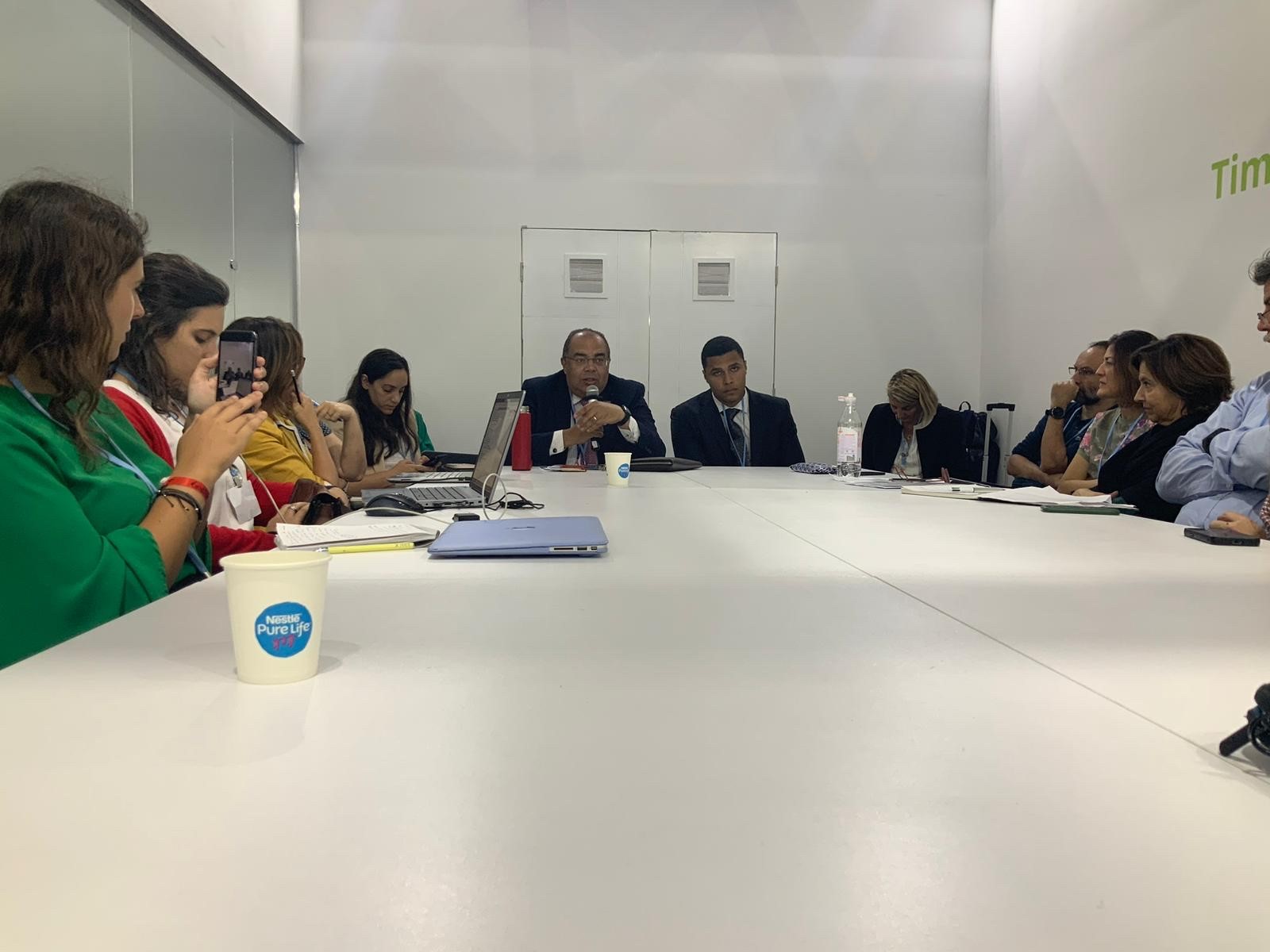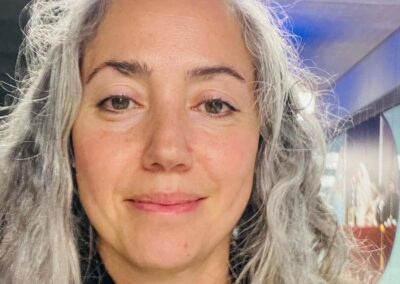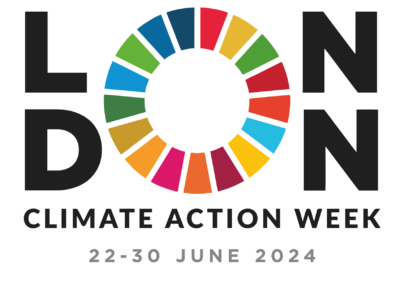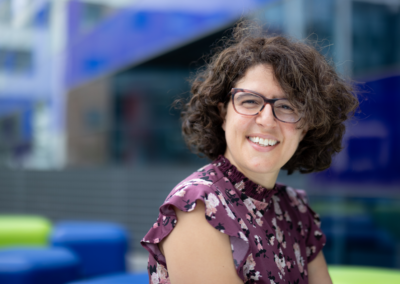Steve Davison, UUCN International Lead, attended COP27 this past November where he co-convened two workshops for senior higher education representatives from around the world to discuss how we can better coordinate our work to support climate action. In this blog, he shares his experience with holding the events, the key outcomes, and thoughts on next steps.
I was sat with my colleagues Kristy Faccer from University of Toronto and Rachel Harrington-Abrams from King’s College London in a small temporary meeting room in the centre of a large conference hall in the International Convention Centre in Sharm el Shiekh. Our first high level workshop had just begun and, while I was pleased to see the room was full of participants, I was struggling to hear the introductions.
We were surrounded by pavilions, each holding their own events. The noise level was high, and it was clear that without any of our own AV we could barely hear the people sat right next to us, let alone on the opposite side of the table.
And then, when we thought things couldn’t get any louder, an impromptu protest march wound its way passed our meeting room. Kristy, Rachel and I had been working on this meeting solidly for the past 48 hours. We wanted it to be more than just a talking shop, now it looked like we might struggle to do any talking.
How did we get here?
My own involvement stemmed from my role in the UUCN. Building on our success in mobilising the UK higher education sector in support for COP26, I wondered whether it would be possible to take this model to an international level.
We’re not the only university climate network in town. There are loads of them, working in different ways across different themes and geographies. They include EAUC, the University Climate Change Coalition (UC3), the Global Alliance of Universities on Climate (GAUC), U7+, CESAR, the International Sustainable Campus Network (ISCN), the Least Developed Countries Universities Consortium on Climate (LDCCC) to mention a few.
It is a busy space, and it is getting busier – a lot of the networks didn’t even exist five years ago. This is no bad thing. Universities are varied, the context they work in is varied, the structures, outputs and communities are varied, and no one network can do everything. The broader the representation within any network, the harder it is to create focus.
On the other hand, it is clear that we need to be much better at working together. The networks have been developing organically within their particular field or geography, often with limited awareness of each other. We are not realising our potential as a global higher education community.
Through my work with the UUCN, I helped convene two online meetings between global university network representatives and then-COP President Alok Sharma.
Although there was strong agreement that we should be working more closely together, it was very hard to get a sense of what this might look like in practice….
A colleague from the University of Toronto, part of the Network U7+ had attended our online meetings and showed strong interest in further collaboration with us. Through this connection, I met Kristy, Director of the President’s Advisory Committee on Environment, Climate Change and Sustainability at Toronto who was keen to help take this forward.
Broadly speaking we agreed on the following:
1. The higher education sector is not, and should not, work in isolation. We are part of a broader community of non-party stakeholders within the UNFCCC. We’re represented by the Marrakech Partnership and High Level Champions – this means that there is an official programme for us to interact with the negotiations. It also means that we need to think not just about how to liaise with each other but also a broader community of global actors.
2. We need to look at action beyond our own walls. Much of our engagement as a sector to date has been focused on reducing our own emissions. However, important though this work is, there is more we can do at a leadership level, using our status and credibility to leverage change and enable action.
3. Our role goes further than research and innovation. Climate change is more than just an engineering or scientific challenge, but the discourse within the higher education sector does not often acknowledge this. The challenge is also political, and universities have a role to play here as well.
Working together, Kristy and I started a process of community building and consultation, reaching out to the various networks, speaking to people directly. This was when Rachel joined our small team as well as Yazan Zamel, a Sustainability Research Assistant at the University of Toronto.
Through our consultations, it quickly became clear that there was considerable appetite for some sort of overarching mechanism or “Network of Networks”. To take this forward, we decided to organise an in-person meeting at COP, bringing all the stakeholders together for a full and frank discussion and were fortunate to secure a small meeting room in the America Is All In Action Center. The response we received from the community was incredibly positive. Networks represented included UC3, GAUC, ISCN, U7+, LDCCC, the Italian University Network for Sustainable Development (RUS), the Research and Independent Non-Governmental Organisations Constituency (RINGO), the Global Council for Science and the Environment (GCSE), and Second Nature. The UN High Level Climate Champion Mahmoud Mohieldin also attended, as did representatives from the UNFCCC Secretariat, the British Council and the United Nations University.
Back to the conference room in Sharm El Sheikh…
In the end, we were able to borrow a portable microphone and speaker from our hosts, which in itself created an interesting dynamic as the microphone was quickly passed back and forth across the group – a bit like a talking stick!

As to what was discussed? Well it is still very much a work in progress. But let me share a few top level conclusions.
Firstly, better facilitation and coordination can go a long way. There is clearly a need for a small secretariat function or hub to better support information sharing and signposting, and act a kind of memory or repository. This would reduce duplication, increase connectivity and ensure that we do not keep reinventing the wheel.
Second, lack of Global South representation is an issue. This came up repeatedly throughout both workshops, and it was noticeable that most of the networks in the room represented the Global North. We cannot speak as a sector unless we represent the whole of the sector, and in many cases these are the voices of most significance to the discussion.
Third, the sector needs to find better ways to be represented in the conference itself. Universities don’t have much real estate at COP – both in terms of physical space (you won’t see many universities amongst the pavilions) but also thematic space. There were science days at COP26 and COP27, but we need to champion this further and ensure representation continues to grow.
Next steps?
We shall see. There is a lot of enthusiasm to put in place the mechanisms needed, and reconvene the group before the next COP. However, it is important that whatever we do brings greater added value by building on and supporting activity already taking place. I’m looking forward to working with the team and partners from across the world to take this forward over the next couple of months.
Steve Davison is Director of Strategy for Cambridge Zero at the University of Cambridge.
Kristy Faccer is Director of the Secretariat for the President’s Advisory Committee on Environment, Climate Change and Sustainability (CECCS) at the University of Toronto.
Rachel Harrington-Abrams is a PhD student in the Department of Geography and the Climate Research Coordinator with the Sustainability Team at King’s College London.


